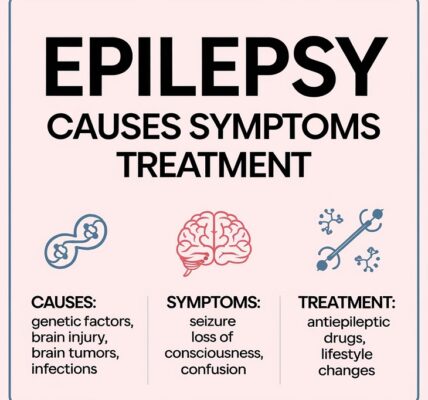Aging is a natural process, but it doesn’t have to mean sacrificing your health or vitality. What if the secret to longevity lies in the very foods we choose to eat? It’s no surprise that what we put on our plates plays a crucial role as our bodies age. The relationship between food and aging is more significant than ever, influencing everything from skin elasticity to heart health.
As you embark on this journey through the world of nutrition and longevity, you’ll discover how certain foods can help you not just live longer, but thrive as you age. From ancient diets steeped in tradition to modern superfoods packed with nutrients, there’s much to explore. Let’s dive into how embracing healthy eating habits can keep us vibrant and full of life for years to come!
The Role of Nutrition in Aging
Nutrition plays a pivotal role in how we age. The food we consume directly impacts our cellular health and vitality. Nutrient-dense foods can help counteract the effects of aging, promoting physical and mental well-being.
A balanced diet rich in vitamins, minerals, and antioxidants supports immune function. It reduces inflammation and protects against chronic diseases like heart disease, diabetes, and cancer.
Moreover, dietary patterns influence cognitive health. Foods high in omega-3 fatty acids have been linked to improved brain function as we get older.
Hydration is another critical aspect often overlooked. Water supports every cell’s function, assisting in nutrient absorption and waste elimination.
Mindful eating habits foster longevity by providing the body with what it truly needs for optimal functioning throughout life’s stages. Choosing whole foods over processed ones creates a foundation for healthier aging experiences that many strive to achieve.
Foods that Promote Longevity
Certain foods stand out when it comes to promoting longevity. These nutrient-dense choices help maintain our health as we age.
Fruits and vegetables are key players. Leafy greens like spinach and kale are packed with antioxidants, which combat oxidative stress. Berries, especially blueberries, offer powerful anti-aging properties due to their high levels of vitamins and minerals.
Whole grains also play a vital role in a long life. Foods like quinoa, brown rice, and oats provide essential fiber that supports digestive health while keeping blood sugar levels stable.
Healthy fats shouldn’t be overlooked either. Nuts, avocados, and olive oil nourish the body with omega-3 fatty acids that can reduce inflammation.
Fermented foods enhance gut health through probiotics. Yogurt and kimchi not only improve digestion but may boost immunity too. Embracing these food choices can pave the way for a healthier future.
The Importance of Moderation and Balance in Eating for Longevity
Moderation and balance are crucial when it comes to food and aging. Overindulgence can lead to a host of health issues, while strict restrictions might create unnecessary stress.
Eating a variety of foods ensures that you receive essential nutrients without overloading on any one type. This diversity in your diet can enhance overall well-being and support longevity.
Portion control is another vital element. Even the healthiest foods can contribute to weight gain if consumed excessively. Finding the right portion sizes helps maintain a healthy metabolism.
Listening to your body also plays an important role. Pay attention to hunger cues and eat mindfully, savoring each bite rather than rushing through meals.
Incorporating treats occasionally keeps the experience enjoyable, making it easier to stick with healthier
How important is healthy eating?
As we have seen, a healthy diet is crucial throughout life, and is also very important during the aging process. But do you know what a diet is considered beneficial to health ?
Generally speaking, there is no single answer. “ Different people, at different stages of life, may have different nutritional needs . However, there is a general idea of nutrients that are essential at all stages of our development,” says Edible.
In general, studies show that eating certain types of foods and following specific eating patterns and strategies can improve health and prevent common diseases , such as heart disease and cancer. Therefore, the recommendation is to invest in a diet rich in plant-based foods, such as fresh fruits, vegetables and whole grains .
Another tip is to reduce the amount of foods of animal origin, especially fatty and processed meats, as this helps reduce the risk of non-communicable diseases, such as heart disease, cancer, diabetes and respiratory diseases .
What is the relationship between healthy eating and slowing down the rate of aging?
On the other hand, diets with lots of processed foods, sugars and bad fats can increase these emotional problems.
What we eat can also affect our energy, irritability, and pain . For example, whole grains (like brown rice) help keep energy levels stable. Lean proteins, like those found in chicken, fish, and legumes, are essential for the production of neurotransmitters that influence our mood and energy.
Therefore, we cannot forget that aging is a natural process, during which the body undergoes several changes at the cellular and functional level. However, proper nutrition can minimize these changes, in addition to preventing diseases that impair quality of life during this period of life.
How to start eating healthier?
“It’s never too late to start,” says Edible. According to the doctor, the right time to change your diet is now. “The sooner you start a routine of healthy eating habits, the sooner you will feel the benefits of these choices in your daily life.”
An important tip has already been given throughout the text: include variety in your diet . .
In general, the daily calorie intake for women over 60 varies from 1,600 to 2,200 . For men in the same age group , the numbers range from 2,000 to 2,600 .“To find out exactly what your daily calorie needs are, it is recommended that you consult a doctor or nutritionist, who will be able to provide you with personalized guidance,” explains Edible.
Other factors help slow down the rate of aging
In addition to healthy eating, other attitudes help to prevent the pace of aging and make this phase arrive in a much healthier way..
In addition, it is important to avoid habits such as smoking and alcohol consumption . They are known to accelerate the aging process, damaging cell health and increasing the risk of developing various diseases.
Finally, one last tip: get a good night’s sleep. A good night’s sleep is associated not only with a slower aging process, but also with a healthier life at all stages. So, the tips are:
- always sleep at the same time every day;
- try to wake up at the same time every day;
- avoid napping too late;
- try to avoid exercising close to bedtime.
Did you like these tips? Now you know the relationship between diet and aging, as well as other habits that can help you avoid premature aging and be a healthy person at all stages of your life! Let’s put it all into practice!
2. Nutrition matters across the lifespan
In the WHO model, healthy aging is viewed as a life-course progression . Healthy nutrition is foundational for supporting physical growth and mental development in infants, young children, and adolescents; in young adulthood and midlife, nutrition and lifestyle patterns influence accumulation and maintenance of muscle, thus supporting aspects of health and physical function . . In older age, good nutrition, including supplemental nutrition when needed, can be used to prevent functional decline and to restore health following acute or chronic diseases, injury, or surgery . Together, achieving good nutrition from youth through mid-adulthood is particularly relevant to muscle strength and functionality in older age; goals are to build peak muscle in youth, maintain muscle strength and function in midlife, and sustain muscle function or minimize loss in older age
Grow well to age well: Infancy, childhood, and adolescence
Optimal nutrition is critical from infancy through adolescence and puberty to support growth and to achieve important motor, language, and social milestones . Nutritional requirements for children in the first years of life support rapid linear growth and weight gain for increased bone length and muscle mass and for growth and development of the gastrointestinal tract, cardiorespiratory system, kidneys, and immune and central nervous systems ). Brain development is especially rapid in the first 24 months, thus requiring adequate macro- and micronutrients.
Without good early nutrition, a child may experience diminished cognitive performance throughout life . In middle childhood (5–9 years) and early adolescence (10–14 years), healthy children experience steady linear growth and development, which are supported by adequate nutrition relative to body size . During puberty, adolescents (15–19 years) grow and develop rapidly, which requires higher amounts of energy, protein, and micronutrients . For lifelong functionality, wellbeing, and achievement, adequate intake of energy, protein, and micronutrients in youth is thus key to physical growth, along with motor, language, and socioemotional development .
2.2. To age well, stay well: Early adulthood and midlife
Staying well in early adulthood and midlife further builds a foundation for healthy aging. Yet some chronic diseases are now increasingly common among younger-aged adults and adolescents, often because of poor nutrition, lack of physical activity, and smoking . The WHO estimates that the elimination of these behaviors would decrease the risk of cardiovascular disease, stroke, and type 2 diabetes by 80% in older adults. Focus on nutrition, weight management, and physical activity in the middle years can facilitate longer and healthier lives.
To age well, eat well: Older people
The global population of older people (≥ 60 years) is predicted to double over the next three decades—reaching 2.1 billion by 2050 . Strategies and systems are thus needed to ensure aging well in this latter phase of life to improve their quality of life and to limit potentially outsized increases in healthcare burdens and costs . To this end, health professionals propose a shift from disease-centered care to function-centered care for older people . In fact, older people themselves want to maintain function (both physical and mental), an aim reflected in the WHO’s goals for facilitating healthy aging .
WHO now frames this concept as intrinsic capacity, which refers to the combination of physical and mental abilities. Thus, healthy aging refers to sustained intrinsic capacity, while lowered intrinsic capacity reflects functional decline. There is agreement that intrinsic capacity has multiple dimensions—including locomotion, vitality, sensory, cognition, and psychological domains. However, the methods for assessing each of these five dimensions presently differ across studies .
Other Factors Contributing to Longevity
While food and aging are closely linked, longevity is influenced by several other factors. Genetics play a significant role in how we age. Some individuals may have inherited genes that promote better health and resilience against age-related diseases.
Physical activity is another key aspect. Regular exercise not only helps maintain a healthy weight but also supports cardiovascular health and muscle strength. Engaging in activities like walking, yoga, or swimming can enhance overall well-being.
Mental health shouldn’t be overlooked either. Staying socially connected and mentally active can reduce the risk of cognitive decline. Pursuing hobbies or volunteering fosters connections that enrich life experience.
Sleep quality matters as well. Insufficient rest can lead to various health issues over time, including increased stress levels and weakened immune response.
Managing stress through mindfulness practices or meditation contributes to emotional balance, paving the way for a healthier aging process.
Conclusion
Food plays a pivotal role in our lives, especially as we age. The right nutrition can enhance health and well-being while promoting longevity.
Embracing a diet rich in whole foods keeps the body nourished and vibrant. It helps fend off chronic diseases that often accompany aging.
Incorporating diverse flavors not only excites the palate but also offers essential nutrients. Enjoying meals with loved ones can further enhance mental health, an equally important aspect of aging gracefully.
Remember that balance is key; moderation allows for indulgences without guilt or repercussions. This balanced approach fosters lasting habits that contribute to vitality over time.
Nurturing your body with wholesome food significantly impacts how you feel each day. As you make mindful choices, you’re setting the stage for a healthier future filled with joy and energy.
FAQs
What role does nutrition play in aging?
Nutrition is crucial as it impacts our overall health and well-being. A balanced diet can help reduce the risk of age-related diseases, improve mental function, and enhance longevity.
Are there specific foods that promote longevity?
Yes, foods rich in antioxidants, vitamins, and healthy fats—like fruits, vegetables, whole grains, nuts, and fish—are known to support a longer life.
How does the Mediterranean Diet contribute to better aging?
The Mediterranean Diet emphasizes fresh produce, lean proteins like fish and poultry, healthy fats from olive oil and nuts. This combination supports heart health and reduces inflammation.
What are some superfoods that aid in anti-aging?
Superfoods such as blueberries, avocados, kale, chia seeds, walnuts—and dark chocolate—offer powerful nutrients that combat oxidative stress.
How can I incorporate these longevity-promoting foods into my daily meals?
Start by including more fruits and vegetables at every meal. Swap out refined grains for whole grains. Experiment with new recipes featuring legumes or add a handful of nuts as snacks throughout your day.
Is moderation important when eating for longevity?
Absolutely! Balance is key. While certain foods are beneficial for health and aging gracefully; consuming them in excessive amounts can lead to other health issues.
Besides diet what else contributes to longevity?
Physical activity plays an essential role along with social connections and mental engagement. Lifestyle choices like avoiding smoking or managing stress also significantly affect how we age.
These questions highlight the interconnectedness of food choices with the aging process while emphasizing a holistic approach towards living longer lives filled with vitality.
FOR FERDUR INFORMATION:https://proteomics.uk/




